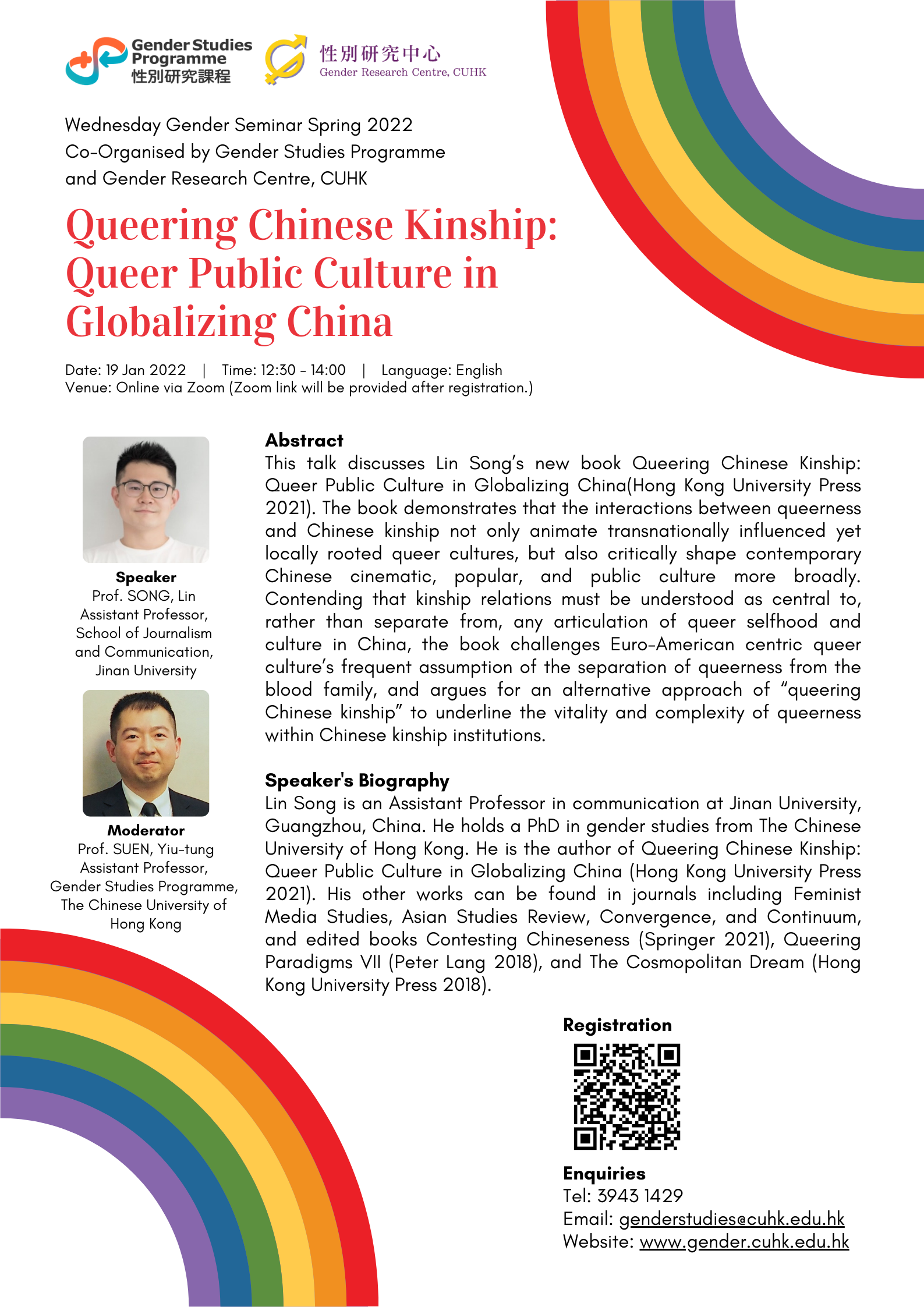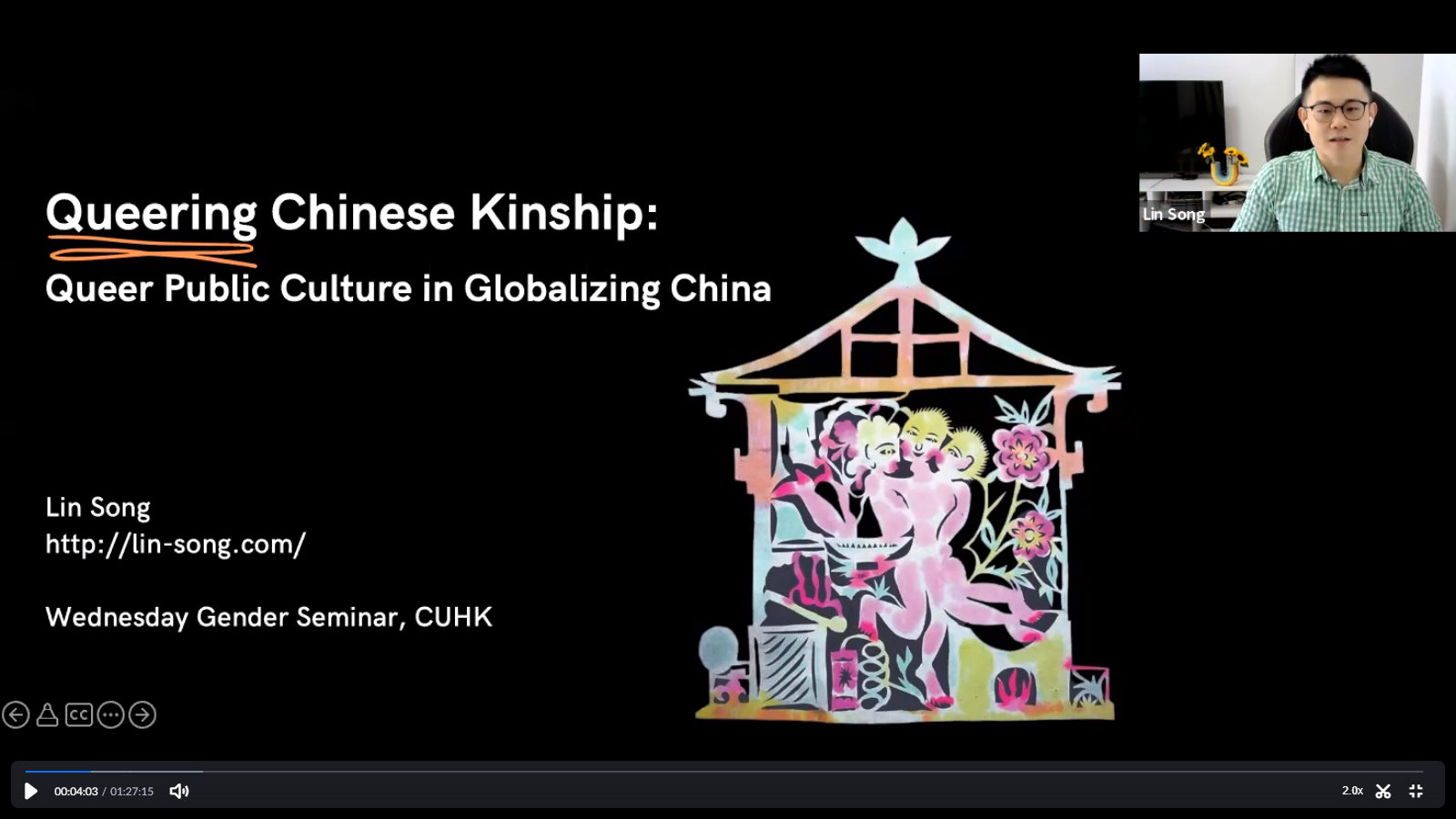The seminar is an eye-opening one and Professor Song Lin from the school of Journalism and Communication of Jinan University shared his study regarding Queering Chinese Kinship.
Queer is a terminology originated from the Western world and it is worth exploring whether the said terminology and definitions of queer are applicable in China who shares a quite different culture and history comparing with those western countries.
Professor Song’s study revealed that the queer definitions from the west may not fully applicable and adaptable for China while Professor Song has pointed out that Queerness is highly correlated with Kinship whereas these two components are shaping each other and formulating a dynamic process of Queering Kinship from a Chinese cultural context.
Professor Song’s has investigated the said topic in his recent publication of “Queering Chinese Kinship: Queer Public Culture in Globalizing China” through various case studies. In the captioned seminar, Professor Song has shared the case study of BiliBili to illustrate the characteristics of Queering Chinese Kinship.
BiliBili is a popular video sharing platform focusing on the youth market in China and there are quite a number of Chinese queers leverage BiliBili as the platform to come out and share their sexuality with the others. The study found out that the content and the approach of such videos are rather different from the westerners; the Chinese queer videos usually involve the queers’ partners as well as their families; such approach echoes the significance of the relationship between queers and kinship. The video contents, moreover, are packaged in a rather romantic and commercialized way to cultivate the interest followed by the acceptance from the public.
Professor Song also evaluated the comments from those anonymous audiences in a bullet curtain; it is found that the comments are all very encouraging and positive which helps reshaping the blood kinship relationships which used to be the first step to boost the acceptance level of queers in China.
It is a live example to manifest the inter-disciplinary nature of gender studies which we should stay cautious about the “one size fits all” approach without considering the local context especially gender is institutionalized through various historical, cultural, economic, and political factors.
It is no arguing that Professor Song brought us an insightful study, but some may challenge the representativeness of those case studies. Perhaps the hackathon approach advocated by Hope, D’Ignazio et al. (2019) can be applied for a deep dive analysis of the said topic and have the most oppressed marginalized group identified with their issues uncovered.
Written by:Hui Wai Hung, Ross





A
A
A
Contact Us